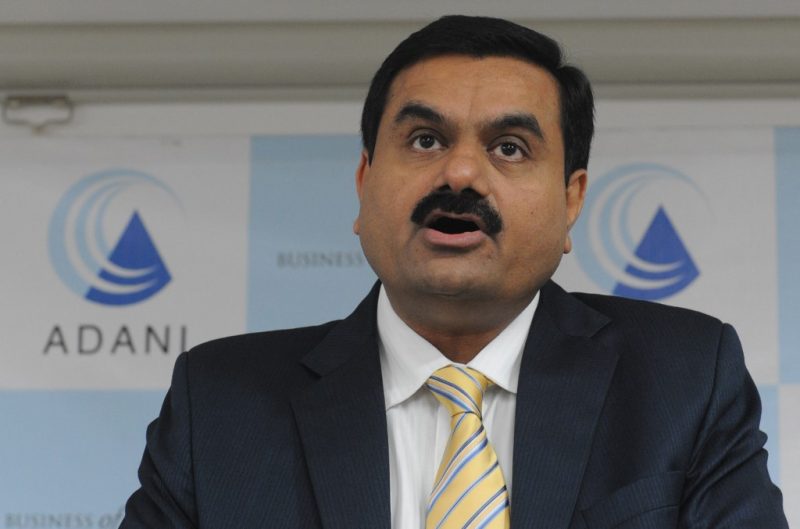(ATF) The announcement that the Adani Group would purchase a controlling 74% stake in Navi Mumbai International Airport Limited (MIAL) has raised eyebrows – and concern.
The purchase will provide the Gujarat-based group with the rights to operate, develop, and maintain this first greenfield international airport in Maharashtra state.
But the move is both surprising and bold; surprising because less than three months ago, the group had dithered over taking three smaller airports from the Airports Authority of India (AAI) citing uncertainty in the air travel business following the coronavirus pandemic.
And bold because, despite the fact that the pandemic has brought civil aviation to its knees, the acquisition of MIAL comes less than two weeks after the group won a government tender for the operation rights of three non-metro airports.
Following a competitive bidding process last February, India on August 19 approved the leasing out of airports at Jaipur, Guwahati, Thiruvananthapuram, Lucknow, Ahmedabad, Jaipur, Mangaluru, and Guwahati through public-private partnership (PPP) deals.
But the Adani Group sought from the government time till February 2021 for the official handover of the Ahmedabad, Lucknow, and Mangaluru airports, which means those would come into its fold later.
Even so, with MIAL and the three others in its bag, the company has become the largest airport operator after the state-run AAI, which controls most of the rest. This also catapults the billionaire-founder Gautam Adani into the league of dominant infrastructure moguls, having built a $13 billion business empire from scratch in less than 15 years.
Controversy-backed track record
The 58-year-old Adani, who has demonstrated a keen nose for identifying opportunities and the ability to navigate tricky political waters, is also a maverick.
For instance, aside from emerging as the largest airport operator, Adani has also acquired operation rights for 11 ports and terminals along the country’s coastline. That has established his group’s presence in most segments of the cargo business.
Similarly, in the utility sector, the group is present in all three verticals of generation, transmission and distribution, with the 12,450 MW of coal-based generation capacity, 8,500 km circuit of power transmission capacity, and rights to sell power to 2.9 million consumers in Mumbai.
Recently, Adani also declared his ambition of becoming the biggest player in solar power. The group bagged the state-owned Solar Energy Corporation of India earlier this year, that came with a solar power plant and a 2GW of solar cell and module manufacturing capacity.
Many have termed Adani’s $6 billion investments in power as audacious at a time when companies are pulling away from power sector investments.
Yet, as he lays claim to being an unmatched infrastructure player whose business has grown at a blistering 30% a year in the last five years, Adani faces a slew of charges ranging from environmental destruction, human rights violation, tax evasion and even money laundering and corruption.
INDIAN INFRASTRUCTURE: India opens vast railway network to private players
The Group’s proposed development of Carmichael coal mine and rail project in Clermont Town, central Queensland, Australia, for instance, is in the midst of a raging controversy following pushback from locals.
Activists there have said the project would cause pollution and other environmental damage and even threatens to destroy indigenous cultures.
Similarly, Adani’s plan to sell power from its plant in the state of Jharkand, India, to next-door neighbour Bangladesh is under severe criticism for “over-charged” pricing – almost 2.74 times the generation cost.
A plan to import Australian coal from 8,000 kilometres away to generate power in India and then sold across the border to Bangladesh, has been criticised as “too convoluted.”
The power plant has also been tagged as a destructive project that is violating indigenous land rights, destroying precious water resources and the local environment, and putting threatened species at risk.
Two years back, India’s Central Bureau of Investigation had also registered a case of cheating and corruption against the Group and a former senior official for alleged irregularities in its tendering process and over-invoicing of equipment imports, to grab a larger share of incentives.
Best time to bet
Still, Adani thinks now is the best time to invest.
In the latest annual report of the group released in June, he said that the recent slump in economic growth notwithstanding, India will be one of the world’s top consumption centres and a manufacturing and services hub for the next several decades.
Yesterday, India’s Ministry of Statistics and Programme Implementation revealed that the country is in the throes of its deepest recession, as its Gross Domestic Product (GDP) for the April-June quarter slipped by a sharp 24%.
A decline was of course expected, owing to a pandemic lockdown that brought the economy to a virtual standstill in the first quarter, from which India is only now slowly and hesitantly exiting.
According to Adani, though, while the country’s battle with the virus is far from over, the actions of its leaders, doctors, healthcare workers, police, army, and its citizens have defined India and its resiliency.
“It will be one of the world’s top consumption centres, manufacturing and service hubs and a beacon of stable democratic governance,” he said. “If there was a time to make a bet on India, there may not be a better time than now.”
























